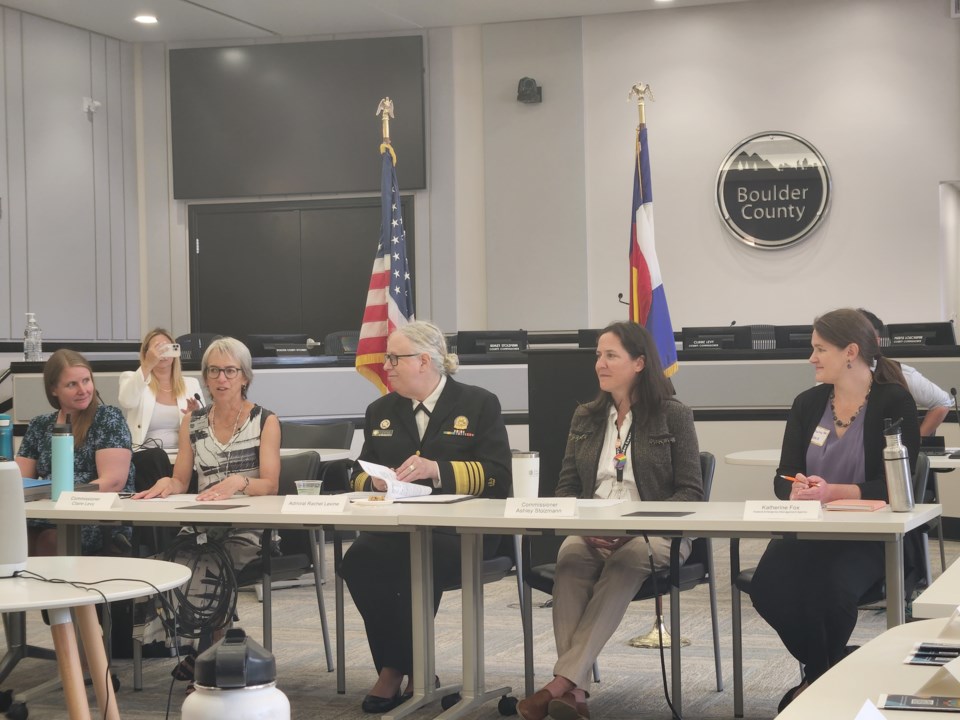Community organizers made it clear to U.S. Assistant Secretary of Health Adm. Rachel Levine that there cannot be environmental justice in Boulder County or Colorado without racial justice.
Boulder County commissioners hosted a climate crisis roundtable with Levine and representatives from the Environmental Protection Agency, Federal Emergency Management Agency and state legislators on Monday. Topics included health equity and climate change, building resilience and innovations in environmental justice.
The biggest theme from the discussion came from representatives from minority groups bearing the brunt of the climate crisis, especially indigenous people, who asked that they get the resources they need to address the crises in their communities.
Renee Chacon, executive director of Womxn from the Mountain, Commerce City City Council member and member of the state’s Environmental Justice Action Taskforce, asked Levine and governments to consider cultural context when responding to the climate crisis.
“When we’re talking about environmental justice, we need to work with trauma sensitivity and cultural responses,” she said. “I know these always seem like political words, but it’s legitimately working with the communities that have had to endure this and provide their own form of equity.”
Many also emphasized that their communities have knowledge about sustainability and the connections to people to help make things happen, they just need the investment from institutions.
“What you have here is whole communities saying let us carry part of the burden,” said Michelle Gabrieloff-Parish, a social and environmental justice facilitator, educator and speaker. “Give us the resources to be in there with you.”
Environmental justice advocate Lorena Gonzalez also spoke about her concerns about government spending on emerging technologies to address the climate crisis, specifically on yet unproven technology, and asked that health and safety of underprivileged communities be a serious consideration when pursuing new climate technology.
“When you look at the research, there are a host of health and safety concerns,” she said. “When we look back, our governments at every level have experimented on our communities for generations.”
Other advocates emphasized the need for time to get the results of investments and for governments to be painfully honest about who is doing the systemic oppression in these situations.
Levine said her office would be following up to try and help build the relationships the advocates asked for, get the resources they need and navigate the complexities of local, state and federal government.
“This needs to be not top down, but bottom up so to speak,” Levine said. “It needs to come from you all and with us helping to facilitate, so we’re going to try to work on that.”



